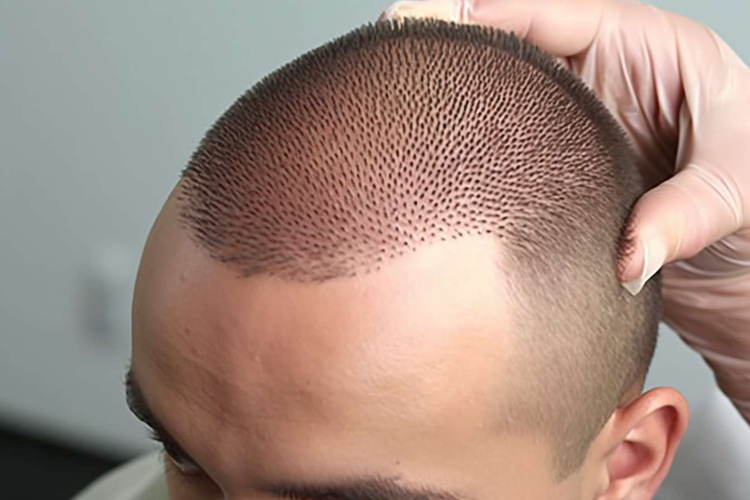She never thought one face cream could bring back her confidence in the mirror.
She tried every filter, every foundation — but nothing made her skin look alive.Until she discovered that the real secret wasn’t in the makeup bag, but in how she treated her skin when no one was watching.That’s when the glow came back — soft, real, and impossible to fake.

The journey to healthy, radiant skin often involves more than just finding the right products—it’s about establishing a routine that works for your unique needs and concerns. For many, this journey becomes transformative, affecting not just how they look, but how they feel about themselves. When the right skincare solution comes along, it can be life-changing, especially after years of trying different products without seeing results.
Understanding Face Serums for Achieving Glowing Skin
Face serums have revolutionized skincare routines across America, offering concentrated formulations that target specific skin concerns with precision. Unlike moisturizers, serums contain smaller molecules that penetrate deeper into the skin, delivering active ingredients where they’re needed most. The right serum can transform dull, tired-looking skin into a radiant complexion that appears healthy and vibrant.
What makes face serums particularly effective is their high concentration of active ingredients like vitamin C, hyaluronic acid, and niacinamide. Vitamin C brightens the complexion and fights free radical damage, while hyaluronic acid provides intense hydration by attracting and retaining moisture. Niacinamide helps reduce inflammation and minimize the appearance of pores, contributing to that coveted glow many seek.
When incorporating a face serum into your skincare routine, consistency is key. Most dermatologists recommend applying serum to clean skin before moisturizer, allowing the active ingredients to work without barriers. For optimal results, many users find that layering complementary products enhances the serum’s effectiveness.
How Anti-Aging Face Creams Work in American Skincare
The science behind modern anti-aging face creams has advanced significantly in recent years. Today’s formulations go beyond simple moisturization to address multiple signs of aging at the cellular level. These specialized creams typically contain ingredients like retinol, peptides, and antioxidants that work synergistically to improve skin texture, firmness, and overall appearance.
Retinol, a vitamin A derivative, remains one of the most researched and effective anti-aging ingredients. It accelerates cell turnover, stimulates collagen production, and helps diminish fine lines and wrinkles over time. Peptides serve as messengers that signal skin cells to produce more collagen, while antioxidants protect against environmental damage that accelerates aging.
American consumers have access to a wide range of anti-aging creams formulated for different skin types and concerns. From lightweight gel creams for oily skin to rich, nourishing formulas for dry skin, the market offers options that can be tailored to individual needs. Many users report seeing noticeable improvements in skin texture and firmness within weeks of consistent use.
Benefits of Adopting a Vegan Skincare Routine
The shift toward vegan skincare represents more than just a trend—it reflects growing awareness about ingredient sourcing, environmental impact, and ethical considerations. Vegan skincare products exclude animal-derived ingredients like beeswax, lanolin, collagen, and carmine, instead relying on plant-based alternatives that can be equally effective and often gentler on sensitive skin.
Plant-based ingredients like botanical oils, fruit enzymes, and herbal extracts offer powerful skincare benefits without compromising ethical standards. Aloe vera soothes irritation, jojoba oil mimics the skin’s natural sebum, and fruit acids provide gentle exfoliation. These natural components often come with added antioxidant protection that helps defend against environmental stressors.
Beyond personal benefits, adopting a vegan skincare routine can have positive environmental impacts. Many vegan brands emphasize sustainable sourcing, eco-friendly packaging, and cruelty-free testing methods. This holistic approach appeals to consumers who want their beauty choices to align with broader values around sustainability and ethical consumption.
Natural Face Lifting Creams and Their Effectiveness
Natural face lifting creams offer an alternative to invasive procedures for those seeking to address sagging skin and loss of elasticity. These formulations typically feature ingredients like DMAE, plant stem cells, and natural peptides that help tighten and firm the skin’s appearance through consistent use.
DMAE (dimethylaminoethanol) has gained popularity for its potential to improve skin firmness and reduce the appearance of sagging. Plant stem cells, derived from sources like apple and alpine rose, help protect skin cells and promote regeneration. Natural peptides signal the skin to boost collagen production, creating a lifting effect over time.
While natural face lifting creams cannot replicate the dramatic results of surgical procedures, many users report subtle yet noticeable improvements in skin firmness and contour. The key to success lies in consistent application and realistic expectations—these products work gradually, with cumulative benefits appearing over weeks or months of regular use.
Evaluating Skincare Products Through Trusted Reviews
In today’s digital landscape, skincare product reviews have become an invaluable resource for consumers navigating countless options. American consumers increasingly rely on detailed reviews that go beyond simple star ratings to include information about skin type compatibility, ingredient effectiveness, and long-term results.
The most helpful reviews often come from users who have similar skin concerns and have used products consistently over time. Look for reviewers who provide context about their skin type, concerns, and how they incorporated the product into their routine. Before-and-after photos, while subjective, can offer visual evidence of potential results.
Professional reviews from dermatologists and skincare experts provide another layer of credibility. These experts can evaluate formulations based on scientific evidence and ingredient efficacy rather than just personal experience. Many dermatologist-reviewed products undergo additional testing to substantiate claims about performance and results.
Popular Face Cream Options and Their Key Features
The American skincare market offers numerous face cream options designed to address various concerns from aging to hydration. Understanding the differences between popular products can help consumers make informed choices based on their specific needs and goals.
| Product Category | Key Ingredients | Primary Benefits | Average Price Range |
|---|---|---|---|
| Hydrating Creams | Hyaluronic Acid, Ceramides, Glycerin | Deep moisture, barrier repair | $20-$65 |
| Anti-Aging Creams | Retinol, Peptides, Vitamin C | Wrinkle reduction, firmness | $30-$120 |
| Brightening Creams | Niacinamide, Vitamin C, AHAs | Even tone, reduced dark spots | $25-$80 |
| Sensitive Skin Creams | Centella Asiatica, Oat Extract | Soothing, redness reduction | $15-$60 |
| Natural Face Lifting | DMAE, Plant Peptides | Firming, contouring effects | $40-$150 |
Prices, rates, or cost estimates mentioned in this article are based on the latest available information but may change over time. Independent research is advised before making financial decisions.
When selecting a face cream, consider not just the marketing claims but the ingredient list and formulation. Higher price doesn’t always equate to better results—many affordable options contain scientifically-backed ingredients in effective concentrations. Most dermatologists recommend choosing products based on your specific skin concerns rather than trends or packaging appeal.
The transformative power of finding the right skincare routine extends beyond physical changes. Many users report increased confidence and improved self-image once they find products that effectively address their concerns. This emotional component highlights how skincare can be both a physical and psychological journey toward self-acceptance and confidence.
This article is for informational purposes only and should not be considered medical advice. Please consult a qualified healthcare professional for personalized guidance and treatment.




